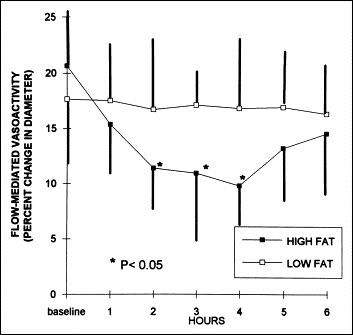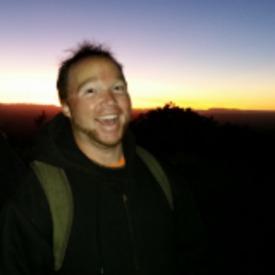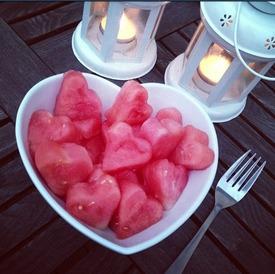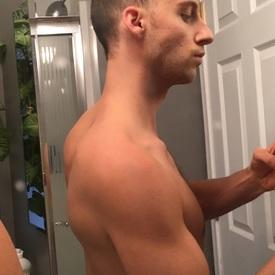Going Plant Based Vegan

FrenchToast95
Posts: 19 Member
Recently I've decided to go plant based! Looking for others who also are plant based vegan.. And if love to hear some advice for newbies like me 
0
Replies
-
Buy some good cookbooks (Isa Chandra Moscowitz, Terry Hope Romero, Robin Robertson, and Bryant Terry are some of my favorite cookbook authors).
Maintain a healthy skepticism about health claims everywhere (including the vegan community, we have some real wackadoos).
Consider purchasing a guide to vegan nutrition (I highly recommend "Vegan for Life" by Jack Norris and Virginia Messina and "Vegan for Her" by Virginia Messina is a good guide for women).
Don't be afraid of fat.
0 -
First ask yourself why? Understand the pros and cons of vegan-ism. Go slow, don't look to be vegan anytime soon. Let your body adjust. Make that your maco goal. Start with tiny mico goals, slowly eliminate certain foods, see what is working and what is not working, Learn what complementary proteins are. Here's some things to be aware of. Chronic fatigue, and iron, carnitine, creatine, and protein deficiency. Also vegans are generally low in zinc, calcium, vitamin D, riboflavin, and B 12. You may have higher levels of phytates, oxalates, and tannins. This can bind minerals making them harder to adsorb. You will be eliminating key food groups from your diet, you should know what to expect. Find support groups, coaches, and educate yourself.
Good luck0 -
Why? If it's for weight loss.... why?0
-
I am not a Plant Based Vegan.. But my husband is so if you want help send me a friend request...
Don't be so hard on yourself if you screw up ... There is a big learning curve for this kind of Vegan. your not going to be perfect overnight and that is OK. You will get there is this is really what you want to do.
There is a good cookbook 101 Best Vegan foods and The Happy Herbivore Cookbooks are great places to start. They have good and are pretty basic to make.
http://www.amazon.com/Best-Vegan-Foods-Publications-International/dp/1450851258/ref=sr_1_1?s=books&ie=UTF8&qid=1428342477&sr=1-1&keywords=101+best+vegan+foods
Good Luck0 -
-
I've been vegan for about 5.5 years now and my body feels so much better than it did when I wasn't on a plant based diet. I actually became a vegan over the period of a couple of years. I stopped eating red meat and dairy when I was 17. I began running a lot and eventually started doing marathons. I felt like every time I ate red meat or dairy I was weighed down. Ice cream was the worst for some reason. Once I made this change in my diet I never had heartburn again...A chronic problem I had always blamed on coffee...
I then went vegan in January 2010 after I had already cut out all meats and eggs for animal cruel reasons. All I had to end was the cheese and yogurt.
So fast foward to today and I am completely vegan for environmental and animal welfare reasons. I live in France where being vegan is a challenge (the land of cheese and fois gras)! But lucky my boyfriend is also vegan and over the past two years I feel we got the cooking part down, so much that the deficiency problems so many think come with a vegan diet are non existant! We make lots of lentils (black ones are great for antioxidants), beans, fresh/raw veggie dishes, vegan quiches...and the list goes on. We try to limit our soy intake (and if you are in the US opt for organic soy products due to gmos).
As for recipes, we rarely use a cook book but we do have a few on hand (but they're in french so I won't list them here). We like to try indien spices, like putting curry, coriander and cumin in coconut milk and mixing it with sweet pototos or chick peas.
I also get my blood checked every year to get all my vitamin and minerals checked. The only issue I've ever had is low vitamin d....which even meat eaters have...my doctor has also told me that he can't say one negative thing about my vegan diet because the bloodwork is perfect...A big surprise for a french doctor to say that!
So now the big thing. ..will you lose weight with a vegan diet?! Yes or no. It depends how you eat! There are plenty of vegan junk foods out there that with the exception of being animal friendly are no better nutritionally than a McDonald's. So avoid all the vegan hotdogs and fried "chicken" nuggets and other foods and go straight to the fresh veg and fruits! I opt for organic foods...as so many scary pesticides are used these days... I also limit soy because of the high estrogen levels. I feel like I get much more hormonal with too much soy...
For milks I prefer rice. But there are many options. I do like almond milk but never buy it due to the honeybee problem in California for the almond tree polination....that's another convoy!
But I really think that if you are ready for a vegan diet go for it! Go slow and don't feel weak if you slip up. It happens! Try new veggies. Maybe sign up for a veggie basket each week? Try new spices with antiinflammatory and antioxidant benefits. I'm sure you will lose weight and feel better...With lots of energy too!!!
0 -
claire_ouellette wrote: »
I think you would be hard-pressed to find anyone who is more pro-vegan than I am. I have been vegan for nine years and I think that it is possible to thrive as a vegan. That said, it is not a cure for ED. Layering food restrictions (which, even from a positive POV, veganism is) on top of an ED can be dangerous.
There are some inspirational stories of vegans who have overcome EDs. If you are interested in reading more, I would suggest the "Green Recovery" series of posts on Gena Hamshaw's "Choosing Raw" blog (she doesn't advocate for a fully raw diet, just suggests ways to add more raw foods to the diet). There are also lots of people who found adding veganism to an ED made their physical and emotional health worse. My concern is that you would complicate your recovery and potentially set yourself back.
Focus on getting better. Veganism will be here when you're ready.0 -
So now the big thing. ..will you lose weight with a vegan diet?! Yes or no. It depends how you eat! There are plenty of vegan junk foods out there that with the exception of being animal friendly are no better nutritionally than a McDonald's. So avoid all the vegan hotdogs and fried "chicken" nuggets and other foods and go straight to the fresh veg and fruits! I opt for organic foods...as so many scary pesticides are used these days... I also limit soy because of the high estrogen levels. I feel like I get much more hormonal with too much soy...
If someone is struggling with an ED, suggesting additional restrictions (avoiding "vegan junk foods") may do them harm. We don't know OP's weight. Calorie dense foods may be just what she needs. Restricting her diet to fresh vegetables and fruits may not be healthy.
0 -
claire_ouellette wrote: »
In this case I'd listen to @janejellyroll . Restricting your diet, even if you think it's a beneficial solution because you'll only be eating "healthy" foods, doesn't sound like something you should be doing. Eat the calories the treatment program told you that you should be eating, and eat calorie dense foods to reacht hat goal. Which will not happen on a plant-based vegan diet. At least not at all easily. And this proposed approach would most likely further your chances of eating below your calorie needs.0 -
claire_ouellette wrote: »
OP, im not vegan, and I dont really care. You just got a kickin body and I thought I would say so.0 -
Tried it, didn't like it -- http://www.mattfitzgerald.org/books/diet-cults-book/0
-
0
-
janejellyroll wrote: »
So now the big thing. ..will you lose weight with a vegan diet?! Yes or no. It depends how you eat! There are plenty of vegan junk foods out there that with the exception of being animal friendly are no better nutritionally than a McDonald's. So avoid all the vegan hotdogs and fried "chicken" nuggets and other foods and go straight to the fresh veg and fruits! I opt for organic foods...as so many scary pesticides are used these days... I also limit soy because of the high estrogen levels. I feel like I get much more hormonal with too much soy...
If someone is struggling with an ED, suggesting additional restrictions (avoiding "vegan junk foods") may do them harm. We don't know OP's weight. Calorie dense foods may be just what she needs. Restricting her diet to fresh vegetables and fruits may not be healthy.
My apologies you are correct. I was typing when she added the ED information. I agree will the info about calorie and nutrient dense foods...and also the helpful reading resources posted in this thread. I realize this is different, but as mentionned I was an athlete for several years and it all came to a stop one day when I hurt a nerve in my leg. I struggled with body issues for 2 years and depression. My eating became abundant and unhealthy...even if it was vegan...I finally hit the point where i decoded to really focus on my vegan diet and nurishing foods. It's been about two years now since I made this change and I feel better and have much better self esteem....still working on that leg issue but it's getting there:)0 -
Capt_Apollo wrote: »
Within the vegan community, "plant based" is sometimes used to refer to a way of eating that is focused on the healthfulness of foods, not avoiding animal exploitation. That might be what the OP means by saying she is thinking of going "plant based vegan," not just vegan.
My concern is that veganism does involve restriction and the restrictions of your typical "plant based" diet go way beyond veganism. I worry that the mindset involved isn't very compatible with attempting recovery from an ED.0 -
claire_ouellette wrote: »Recently I've decided to go plant based! Looking for others who also are plant based vegan.. And if love to hear some advice for newbies like me

UPDATE: my eating disorder was not a restricted one. I binged a lot, on very unhealthy foods.. Which would lower my self esteem. I've slowly been eating healthier and cleaner and it has helped tremendously. I just want to know the dos and donts of PBVeganism. Should I stay away from brown rice? Can I still eat natural organic pb? Do I count calories with this lifestyle??
0 -
you can check out ohsheglows.com for some recipe ideas..0
-
I think you should take the advice of not following a restricted diet plan regardless of whether your issues were with bulimia or anorexia. Or whether it was just about binge eating.
Why don't you just continue eating as you are now if you are meeting your nutrient needs?0 -
I have been vegan for 25 years and completely agree with the below..janejellyroll wrote: »claire_ouellette wrote: »
I think you would be hard-pressed to find anyone who is more pro-vegan than I am. I have been vegan for nine years and I think that it is possible to thrive as a vegan. That said, it is not a cure for ED. Layering food restrictions (which, even from a positive POV, veganism is) on top of an ED can be dangerous.
There are some inspirational stories of vegans who have overcome EDs. If you are interested in reading more, I would suggest the "Green Recovery" series of posts on Gena Hamshaw's "Choosing Raw" blog (she doesn't advocate for a fully raw diet, just suggests ways to add more raw foods to the diet). There are also lots of people who found adding veganism to an ED made their physical and emotional health worse. My concern is that you would complicate your recovery and potentially set yourself back.
Focus on getting better. Veganism will be here when you're ready.
0 -
claire_ouellette wrote: »UPDATE: my eating disorder was not a restricted one. I binged a lot, on very unhealthy foods.. Which would lower my self esteem. I've slowly been eating healthier and cleaner and it has helped tremendously. I just want to know the dos and donts of PBVeganism. Should I stay away from brown rice? Can I still eat natural organic pb? Do I count calories with this lifestyle??
I can't speak to "plant based," as I don't understand the logic behind those restrictions.
But vegans can eat brown rice. We can eat peanut butter. And, like all other humans, we need a calorie deficit if we want to lose weight.
When you ask about the "dos and don'ts," is there a specific plan you are thinking of?
0 -
hey!!! I'm not entirely plant based (yet!!) but I am a newer vegan who eats mostly plant based. I'm so happy I made the switch, it makes a giant difference in the way you feel. (granted you don't live off of oreos just cause they're vegan haha)0
-
claire_ouellette wrote: ». I just want to know the dos and donts of PBVeganism. Should I stay away from brown rice? Can I still eat natural organic pb? Do I count calories with this lifestyle??
I'm also new to this, in my 3rd month, still working on phasing out cheese and eggs. I used the PCRM 21-day kickstart as a guide, and am investigating some of their recipes as well. I'm also involved in a local Plant Based Nutrition support group which follows the research of cardiologists John McDougall, Dean Ornish and Caldwell B. Esselstyn, Jr with a whole foods, plant based, no oils approach, which is one end of Ornish's Spectrum for people with heart issues (which I have).
To answer your questions:
Brown rice is great ! whole grain, fiber, lots of nutrients, the dietary staple of nearly 2/3rds of the world. McDougall promotes a starch based approach (complex carbs) for providing
Organic PB is fine, but remember that nuts are generally high in fat. Being a whole food (nothing added or removed) it is fine, in moderation.
Check out PCRM: Vegetarian and Vegan Diets for more information. The Spectrum by Dean Ornish is also a good resource, outlining how diet isn't 'one size fits all', but a spectrum of options and choices.
0 -
Miss Claire, first I just want to say good job in changing your diet for the betterment of your health! It really depends what your goals are for what you should eat. I got diagnosed with Lyme disease is how I got into the plant based diet. Organic peanut butter is okay, I use to eat jars of it per day... not joking. But through research found out peanuts can obtain a decent amount of mold. There are better alternatives. Brown rice is a healthier option than white rice, and it is a good source of complex carbs along with sweet potatoes. Just be aware of quantity because if over consumed it can be high in carbs, with little protein. The best plant based food I found is lentils. It has the highest protein to carb ratio, with about 20grams protein to 40grams carbs per cup. Black beans or other beans you would be lucky to get 8-9grams of protein. Higher protein will allow the body to be leaner, since that's usually the main arguement of non plant based people "where do you get protein".
Some other great foods I consume for plant based daily besides lentils... Chia seeds, fermented cabbage, kale, any vegetables, Sunwarrior protein powder (vanilla), beans/nuts/seeds, etc. Ideally all foods should be organic for best health outcome. Soy is also one of the most processed foods in America so steering away from it is best. I did this while trying to gain muscle and was successful. Getting close to 190grams of protein per day without any meat or eggs. It is possible through strategic nutrition.
Your last question of "do I need to count calories?" Well, that's a very broad question. Depends what suites you best. If eating 3-5 small meals with portions sizes works best for you and counting calories is too stressful, do that. If you want precise, then count calories. Body composition does not care what foods you eat, meaning if you consume 2000 calories of plant based foods and 2000 calories of icecream, body composition wise, it's no different. Health wise, of course it's different. In the large scheme of things, counting calories is best if you want to lose weight or gain muscle. Personally I use a site called scoobies workshop calculator just type into google and it'll take you to the guys site, I found this app to be slightly off for me, especially since I'm in my early 20's my metabolism is faster. Anyway, best of luck. Keep making strides forward. Also, always record measurements of body per week and adjust diet/calories accordingly to meet your goals. It can be overwhelming at first but research research research, knowledge is power. Stick to the basics of lentils/seeds/nuts/vegetables and healthy fats like avacado, coconut oil, red Palm oil and you'll be just fine.
Another topic to look into is juicing vegetables... Best way to get loads of nutrients for your body.0 -
I'll agree with the concept of 'healthy fats' but there is no such thing as a healthy oil. Oils are a processed food, it is better to consume the fat in the original package: coconut, olives, avocado.
Arterial function following high fat vs low fat meal, over 6-hour time period:
High fat meal: Egg McMuffin®, Sausage McMuffin®, 2 hash brown patties, and an unspecified beverage.
Fat-free meal: Frosted Flakes®, skimmed milk, and orange juice.
Additionally, Oils damage endothelial cells - the inner lining of blood vessels, inhibiting vasodilation. Increasing saturated fats on top of this increases the risk of developing atherosclerosis, arterial plaque, heart disease, and
stroke.
YouTube: Olive Oil Is Not Healthy - Michael Klaper MD
The Newest Food-Cure: Coconut Oil for Health and VitalityDr McDougall wrote:My conclusion is that coconut is a natural plant food which can have a small place in most people’s diets. As a whole food the oils are combined with the fiber, vitamins, minerals, and other plant components in a way that makes them safe. When the oil is removed by processing from its natural surroundings then it becomes a medicine at best and a toxin at worst—just like other oils (corn oil removed from corn, olive oil removed from olives, etc.) The more processing— the worse the oil.
If you decide to include this high fat food in your diet; then realize that coconut is very rich, packed with calories and fats. You will likely gain weight if this becomes a big part of your diet. People with weight-dependent diseases, like type 2 diabetes and degenerative arthritis of the lower extremities should be very careful about including coconut in any form. Otherwise, as a condiment—like other nuts and seeds—coconut will add unique flavors to your meals and provide quality nutrients. Just think of it as a treat. Have you ever tried to open a coconut? One reason they are packaged in such hard shells may be to keep people from eating too much of a good thing.
Remember: “The fat you eat is the fat you wear.”0 -
gparfitt09 wrote: ». Soy is also one of the most processed foods in America so steering away from it is best.
What does this mean? Soy can be processed to varying degrees. You can eat the soy bean, tempeh, tofu, soy milk, or textured vegetable protein -- all of these are processed to different levels. "Soy" is not a single food.
I am not even sure why it is "best" to stay away from processed foods. What in tempeh is going to be harmful to me?
0 -
-
claire_ouellette wrote: »Recently I've decided to go plant based! Looking for others who also are plant based vegan.. And if love to hear some advice for newbies like me

Look for reputable websites that explain the lifestyle. Talk one on one with people who have been actively using the lifestyle for a few years and who are healthy.
Any type of diet needs to be properly balanced. And gaining/losing/maintaining weight is directly linked to calories consumed.
I too second whoever said to take things slow. Most times going "all out" at a fast rate leads to failure. Make changes over time. Learn as you go. If you can, a dietitian who supports your desired diet would be the perfect person to talk with!
Best of luck!0 -
janejellyroll wrote: »
Overly simplified and in a closed system, true, but the human body isn't a closed system. The effect of calories when metabolised depends on the 'packaging' as well as the quantity
Why Calories Don’t Matter by Mark Hyman, MD
And you also disagree with Dr. John McDougall, a pioneer in low fat, whole foods plant based/vegan, starch centric approaches of treating obesity and heart disease. He has over 40 years of research to back up his positions. Research is also concluding that not all calories are equal.
YouTube: Why You THINK Carbs Make You Fat | John McDougall, M.D.Bananiac asks Dr. John McDougall about where the notion of "carbs make you fat" originated from. Dr. McDougall is a promoter of a starch-based vegan diet, which is very high in carbohydrates, for getting his patients to lose weight and reverse diseases such as heart disease, diabetes, arthritis, and much more. Dr. McDougall has concluded that it's not the carbs that make people fat, but it's the fat itself.
"The fat you eat is the fat you wear" ~ Dr. John McDougall.
We'll have to just agree to disagree...
0 -
I am plant based, but not vegan. I'm not currently doing dairy, but I do eat fish. I eat about a lb of veggies daily. I just picked up an awesome protein drink by Garden Of Life, Plant Protein, honestly it's delicious. I'd like more veggie friends!claire_ouellette wrote: »Recently I've decided to go plant based! Looking for others who also are plant based vegan.. And if love to hear some advice for newbies like me
0 -
janejellyroll wrote: »
Overly simplified and in a closed system, true, but the human body isn't a closed system. The effect of calories when metabolised depends on the 'packaging' as well as the quantity
Why Calories Don’t Matter by Mark Hyman, MD
And you also disagree with Dr. John McDougall, a pioneer in low fat, whole foods plant based/vegan, starch centric approaches of treating obesity and heart disease. He has over 40 years of research to back up his positions. Research is also concluding that not all calories are equal.
YouTube: Why You THINK Carbs Make You Fat | John McDougall, M.D.Bananiac asks Dr. John McDougall about where the notion of "carbs make you fat" originated from. Dr. McDougall is a promoter of a starch-based vegan diet, which is very high in carbohydrates, for getting his patients to lose weight and reverse diseases such as heart disease, diabetes, arthritis, and much more. Dr. McDougall has concluded that it's not the carbs that make people fat, but it's the fat itself.
"The fat you eat is the fat you wear" ~ Dr. John McDougall.
We'll have to just agree to disagree...
What research are you referring to? I clicked on your link, but it was a youtube video.
If you're saying that McDougall's research proves that eating fat will cause one to gain weight, even at a calorie deficit, I would be really interested to see that. I don't think carbohydrates make people fat. I don't think fat makes people fat. You're disagreeing on the very basis of how energy works -- claiming that the body can sustain itself -- or even grow -- while taking in less energy than is burned. This just doesn't make sense.0 -
Not sure if anyone recommended No Meat Athlete, Happy Herbivore or Engine 2 Diet but all good books. Feel free to add me if you want. I'm not quite vegan but I think it would be best for me moving forward. I just feel better and have way more energy since not eating meat. Disclaimer - I do eat organic eggs, cheese and greek yogurt.0
This discussion has been closed.
Categories
- All Categories
- 1.4M Health, Wellness and Goals
- 398.1K Introduce Yourself
- 44.7K Getting Started
- 261K Health and Weight Loss
- 176.4K Food and Nutrition
- 47.7K Recipes
- 233K Fitness and Exercise
- 462 Sleep, Mindfulness and Overall Wellness
- 6.5K Goal: Maintaining Weight
- 8.7K Goal: Gaining Weight and Body Building
- 153.5K Motivation and Support
- 8.4K Challenges
- 1.4K Debate Club
- 96.5K Chit-Chat
- 2.6K Fun and Games
- 4.8K MyFitnessPal Information
- 12 News and Announcements
- 21 MyFitnessPal Academy
- 1.5K Feature Suggestions and Ideas
- 3.2K MyFitnessPal Tech Support Questions














